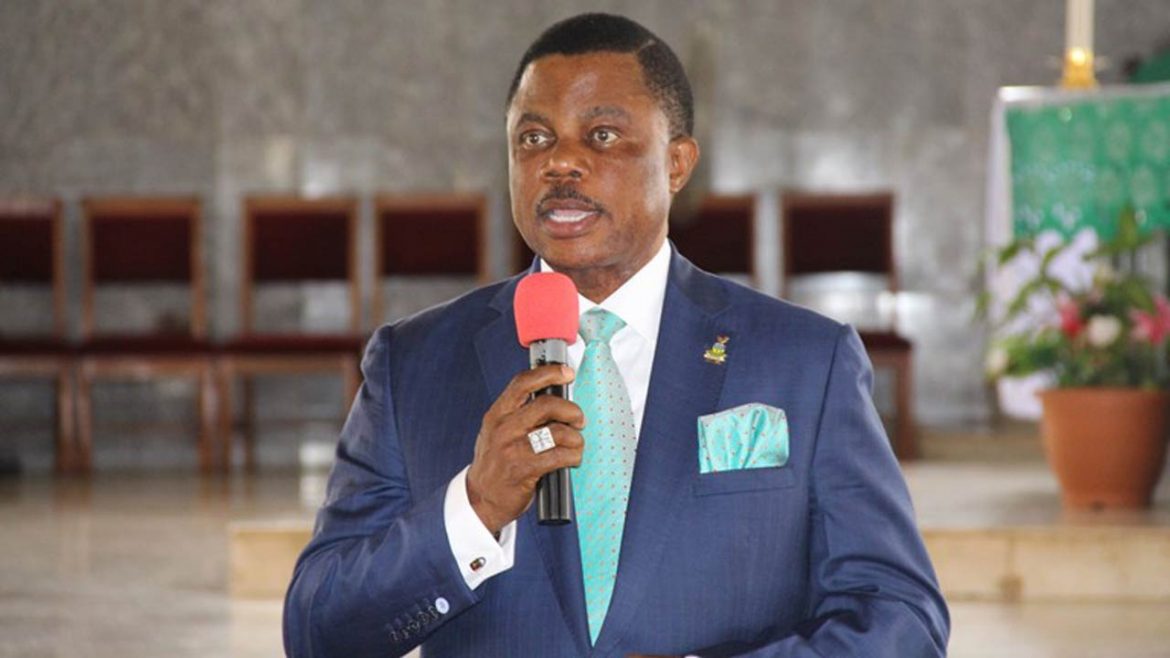By Ifeanyichukwu Afuba
Two events in close succession just before the 6th anniversary of the
Willie Obiano administration on March 17, 2020, open a window into the
resilient community that has been forging in Anambra State. It is an
evolving society in which the government – citizen pact is growing
roots. More importantly, the process has largely been driven by its
participatory and transparent nature.
On February 29, 2020, the 12th Nigeria Police Games kicked off in
Anambra State. The eight day sports competition was widely adjudged a
resounding success. But the crunch was whether to host the Games in the
first place in the prevailing economic circumstance? Would the Obiano
administration’s policy of ‘doing more with less’ win again? Did the
principle still resonate with the public? The two questions were
answered in the affirmative. The huge task of providing the needed
facilities and services for a successful hosting at short notice was
understood by sections of the society. However, the conviction was
strong that in the true tradition of rising up to the demands of time,
the set targets would be met. And they were. Public support proved
pivotal to successful hosting; in a competition involving over three
thousand athletes and officials, there were no cases of injuries or
brawls.
In another historic break, Governor Willie Obiano on Thursday, March 12,
2020, commissioned the impressive NYSC Permanent Orientation Camp built
by his administration at Mbaukwu/Umuawulu. It is a project with especial
significance for the Anambra society. Since creation in 1991, Anambra
had for 28 years operated a temporary, improvised NYSC camp at Umunya.
The State received butt of derisive jokes from youth corpers and other
concerned Nigerians for this act of omission. Obiano found this self
relegation unacceptable and had on February 10, 2015 laid the foundation
stone, restoring Ndi Anambra’s sense of pride with delivery of the
complex.
It is partly correct to trace the making of this new Anambra State to
the traumatic events of 2003 to 2006. However, the an attempt at a new
consciousness by the Chris Ngige regime was circumstantial, narrow in
objective and driven by the instinct of self survival. The radical shift
came with the reclamation of Peter Obi’s stolen 2003 governorship
mandate. That democratic empowerment ushered in the season of citizen –
centred governance. The APGA – driven change mission has received
impetus from Obiano in a number of ways.
The Willie Obiano administration’s efforts to place Anambra State on the
front row of Nigeria’s developing States seems philosophically run on
the legacies of leading lights of Anambra State origin in history. The
quest to maintain the standards of heritage has often meant taking on
challenges that break new grounds. It is a spirit that Ndi Anambra
recognised in the realised dream of making Anambra a major food
producing State; an investor choice destination; a system of functional
institutions exemplified by the State road maintenance agency. It is a
mission that Ndi Anambra has come to share.
Rallying the people became easier by striking the right chord and
regularly demonstrating the fitting spirit. From the outset, the
invitation to participatory governance jettisoned officialdom and took
on an affective appeal. In his addresses and interaction with groups,
Obiano again and again uses the endearment expression ‘umunnem.’ The
kindred compliment has a way of breaking the partition between governor
and governed, affording the atmosphere for constructive engagement.
Aside stakeholders’ summit, the Obiano administration interfaces with
the influential Anambra Elders’ Council on a quarterly basis. The body
comprises past governors of the State, retired Chief Judges, bishops of
the Church, select captains of industry and such other outstanding
citizens of the State. With the wide spread of members’ constituencies,
aggregate public opinion is conveyed through the Council’s input in
decision – making.
The new Anambra State has come this far because the present leadership
has put the people first in the consideration of choices open to it.
Obiano stands out as a Governor who has kept fidelity to the principle
of continuity in government. Obiano who inherited N9b cash, N35b
investment and N109b debt from the Peter Obi administration has
continued with the execution of uncompleted projects he met on
assumption of office in 2014. Among the inherited projects completed are
roads, hospitals, school blocks, government buildings, Agulu Lake Resort
and Onitsha Shopping Mall.
With its commitment to continuity and completion of inherited projects,
the Willie Obiano regime saved Anambra State losses associated with
policy inconsistency. It is a sad reality that projects are sometimes
discontinued for new ones by successor administrations for the lure of
taking political credit. The spectre of abandoned work sites is also
about contractors absconding from site after collecting hefty
mobilisation fees.
As Catholic newspaper Fides observed in its editorial on commissioning
of the Onitsha Mall [April 17 – 23, 2016], ‘Obiano could have chosen to
abandon the project and cite any reason for that.’ Not only do
incidences of arbitrary project discontinuation lead to investor flight,
it introduces the element of instability in governance as well as
stalling development. In 1983 the Lagos State Government had concluded
arrangements to introduce the metroline transportation system in the
State at the cost of $100m. Indeed, preliminary work had started at Yaba
when the December 31, 1983 coup occurred. The new ruling junta
unilaterally cancelled the project which action attracted a default
penalty of $60m on the country.
Consider also that the expatriate consultants who produced the road map
to Nigeria’s steel development had chosen Onitsha as the fitting site
for steel industry. But this expert decision was discarded by small –
minds in strategic government positions who changed the location to
Ajaokuta. Four decades later, and trillions of naira into the bargain,
Ajaokuta has neither grown into a town capable of hosting a modern
industrial complex nor has it started producing quality steel.
Afuba is editor of Anambra Times.



